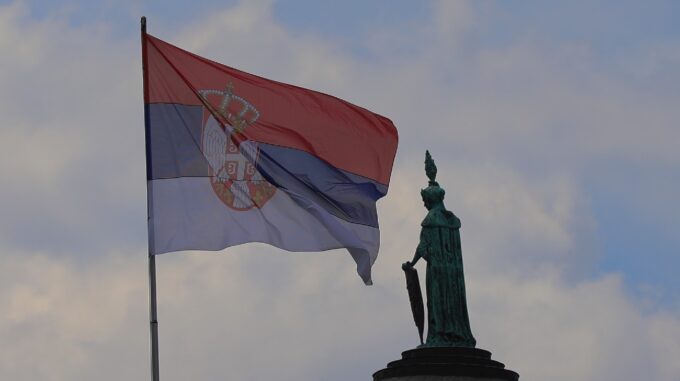Serbia partially resumes ammunition exports ahead of tense international talks

Serbian President Aleksandar Vučić announced the country’s intention to partially lift restrictions on ammunition exports imposed the day before due to growing international tensions and internal debates. The decision was a significant step in the context of increased interest in the country’s defense sector, which has sparked a wave of discussions both in the region and beyond. It is important to note that the Serbian leader emphasized that the final decision on arms exports will be made exclusively by the leading security body — the National Security Council, which consists of high-ranking officials, including the president, prime minister, defense minister and interior minister. According to Vučić, this body will determine which countries and under what status can receive Serbian weapons, and so-called “black, gray and white lists” of recipient countries will be created. The decision to resume ammunition exports was long-awaited, as Serbian manufacturers had previously been forced to suspend supplies due to internal and external restrictions. Vučić noted that, although a ban on the export of military surpluses had been introduced earlier, this measure had created serious problems for the country, but now it had to be lifted due to the financial and social needs of the defense sector. The president stressed that the decision to temporarily suspend exports was made in connection with growing international tensions and political challenges, in particular in the context of the conflict in the Middle East and the situation around Ukraine. Vučić admitted that his country was feeling external and internal pressure, especially after the announcement on Monday of the suspension of ammunition exports. The official added that demonstrations were planned at defense production facilities to show the need to resume supplies, as factories depend on revenues from defense products to ensure salaries and economic survival. Once again emphasizing the complexity of the situation, Vučić assured that the country seeks to regulate exports, taking into account both global and local interests. At the same time, he noted that he is discussing the possible sale of ammunition to countries that have participated in military conflicts with the relevant security and diplomatic structures. His words came on the eve of intense international debates that have arisen around Serbia's participation in the supply of defense products in the context of conflicts in the world. In particular, the issue remained relevant due to the country's historical reputation as a neutral player, which at the same time could act as a mediator for international defense agreements. In August of this year, Russian special services and analytical centers began to complain that Serbian defense enterprises were allegedly ignoring their neutrality and continuing to transfer ammunition, in particular to Ukraine. Moscow on Monday repeated these accusations, calling the issue one of the most sensitive for Russia and facing a difficult diplomatic situation in the region. Earlier, Serbian President Vučić said in comments that the country has nothing against reselling ammunition to intermediaries who then use it to deliver it to various countries, including Ukraine. This creates an additional layer of complexity in relations with transnational players and highlights how much the country is debating the balance between its own security, economic development and international obligations. Thus, Serbia is currently in the process of reviewing its defense policy, trying to find a compromise between domestic economic interests and global security challenges. The final decision on the export of ammunition will be an important signal to the international community, and at the same time will show the degree of internal political stability of the country against the background of growing tensions in the region and in the world.

